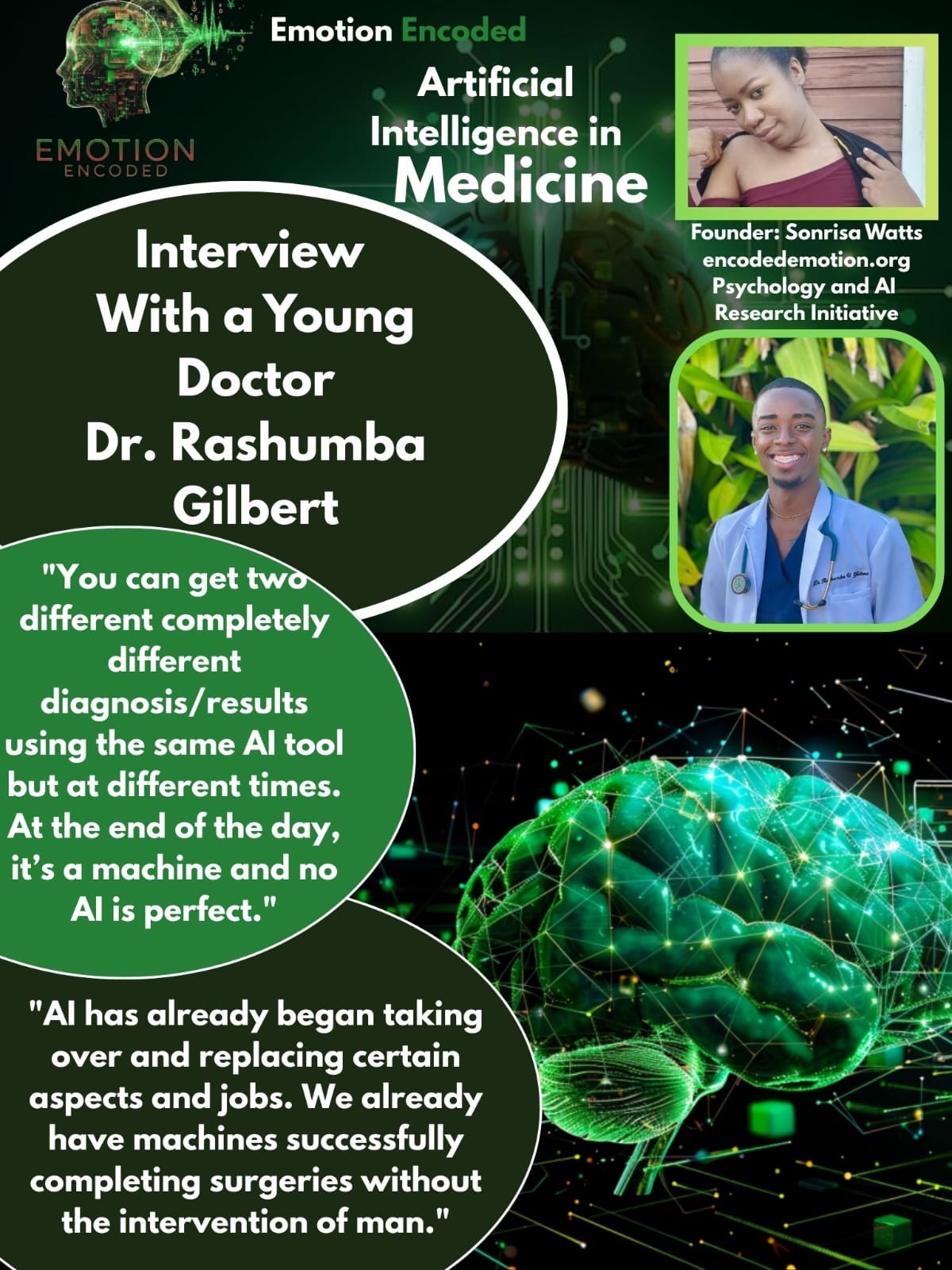Artificial intelligence is already reshaping healthcare, raising pressing questions about trust, judgment, and responsibility. To understand how young professionals are navigating this shift, Emotion Encoded sat down with Dr. Rashumba Gilbert, a recent graduate trained in Cuba, to explore his perspective on AI’s promises and pitfalls in medicine.
Algorithm Aversion: When One Mistake Breaks Trust
When asked whether a single mistake from an AI diagnostic tool would permanently damage his trust in it, Dr. Gilbert gave a balanced response.
“It depends on the overall accuracy. If it’s a tool I’ve been using for a while and has been accurate up until that point, I would look into other tool options but I would probably continue using that tool until I find an upgrade or replacement. If that mistake was made in the first few attempts of using the tool then I would cease all use.”
His view captures the fragile balance between trust and skepticism. Unlike human colleagues who are often forgiven for errors, AI systems may face harsher judgment when they fail early on.
Automation Bias: The Need to Double-Check
Dr. Gilbert was clear on the risk of over-reliance:
“Yes of course. You can get two completely different diagnoses using the same AI tool but at different times. At the end of the day, it’s a machine and no AI is perfect.”
This response highlights the critical role of medical professionals as vigilant curators, ensuring that AI’s outputs are not blindly accepted.
Trust in Medical Judgment vs. AI
When confronted with a scenario where AI recommendations conflict with his own training, Dr. Gilbert reflected honestly on the limits of individual knowledge:
“Using AI for treatment recommendations would already suggest that I’m not fully confident in my own knowledge, so I would quicker trust the machine due to it having access to millions of sources in a matter of seconds, while my knowledge is limited. However I would cross reference and ensure that it’s the right treatment overall.”
His answer shows the tension between human judgment and machine knowledge. While he recognizes AI’s superior access to information, he emphasizes the importance of verification and cross-referencing rather than surrendering decision-making completely.
AI’s Expanding Role in Healthcare
On the broader question of AI’s impact, Dr. Gilbert acknowledged its transformative potential:
“Yes, it already has. Just like many other working fields, AI has already begun taking over and replacing certain aspects and jobs. We already have machines successfully completing surgeries without the intervention of man.”
This perspective reflects the growing reality that AI is no longer experimental. It is already embedded in healthcare practices, from diagnostics to surgery.
